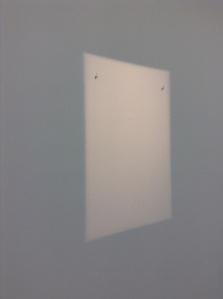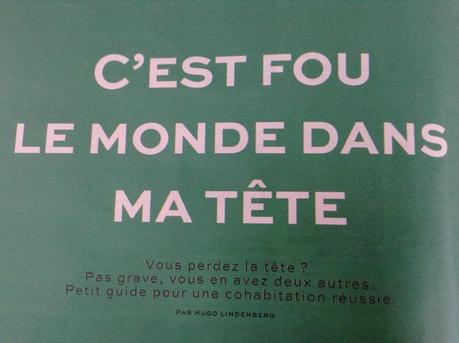 Lately I’ve been thinking a lot about inspiration and where it comes from, and going in search of it. Once I decided to write this post I had one of my regular bouts of word blindness and wondered if I even knew what the word means:
Lately I’ve been thinking a lot about inspiration and where it comes from, and going in search of it. Once I decided to write this post I had one of my regular bouts of word blindness and wondered if I even knew what the word means:
INSPIRATION
1 The process of being mentally stimulated to do or feel something, especially to do something creative:
2 A sudden brilliant or timely idea
As mentioned in my madcap collaboration with Francis Plug on Author Events a couple of weeks ago, one of the most common questions writers face is where we get our ideas. Although it probably is dull having to answer that repeatedly, the question doesn’t surprise me as there’s something mysterious and fascinating about the provenance of inspiration and ideas. I love hearing other writers talk about how a random or indistinct thought takes shape and merges with others, eventually developing into something complete, with a life of its own and different meanings for everyone who reads it.
The source of ideas often seems to particularly interest people who don’t write. I’ve lost count of the number who’ve told me they could write a novel if they could only come up with some good ideas to start with … (I smile and nod.) Conversely I’ve come across very few writers who struggle to find ideas – many have more than they can cope with.
In my experience, definitions 1 and 2 of inspiration are inseparable. It’s often said that when embarking on a new project the idea to run with is the one which gets stronger and more vivid. It grows. When this happens, the motivation to transform it into a story takes over and the elusive ingredient is not inspiration, but time and stamina. Writing a novel is a lengthy endeavour fuelled by the constant flow of ideas, images, dilemmas and so much of it is sub-conscious: many authors have a eureka moment where they realise the book isn’t about what they thought it was about, or when a reader comes up with an interpretation so much more profound and intelligent than what you were thinking at the time that you can only, well, smile and nod.
I’m not a psychologist (I know some of you are, and hope you’ll comment!) so my understanding of how it all works, or why some people function like this and others don’t, is rather sketchy. I can only focus on how it happens in practice for myself, not because I am fabulously inspired (sadly) but because I don’t know what goes on in anyone else’s head – or at least, no real people’s!
On a piece of scrap paper I made a list of ideas which have made it into my novels and short fiction. In almost every case, the starting point was an object or real life experience:
- Sitting next to a stranger on a park bench
- A convertible passing by on a deserted road in rural France full of people in 1930s fancy dress
- Abandoned copies of the Metro on the floor of Tube carriages
- Family photographs in which something isn’t as it first appeared
- Boarded up houses on the North Circular road
- Shopping trips to IKEA
- Conversations with my Greek-Cypriot hairdresser
- An online fundraising campaign for pancreatic cancer
- A burglary on my house, solved ten years later
- A newspaper story about a Walmart cashier
- Identity theft (although the story turned out not to be about that)
You could call those external stimuli (they’re often used in workshops and writing exercises).
The way they subsequently develop has more of a personal, internal nature and is influenced by my experience, beliefs, personality, the things which matter to me and increasingly, how honest I’m prepared to be, even though I’m not writing about myself. All writers face this issue, which I touched on in my Second Novel piece in the summer – we’re always being told ‘write the book only you can write’. It took me a long time to realise how much trying to ‘please all the people’ interferes with inspiration and produces vanilla writing. For me, anyway.
There’s still a lot I don’t get about inspiration and how it works, but working out what doesn’t is a big step forward and it’s different for everyone. I’m not terrified of the blank page if I already know more or less what I’m going to write that day. That’s why a daily long walks or swim away from all distractions is a necessity to work where the story’s going next. That’s the hard part. I love it when a thought I’ve had in the morning gets written that afternoon, becoming part of the text in such an apparently random way, although as a writer friend pointed out, there must be some evaluative filtration process going on. Heaven knows, I have an unending supply of worthless ideas.
Fiction writers are never really off duty. Not only is everything material, but we are puzzling stuff out all the time whilst driving, cooking, sleeping (or not – the incidence of insomnia in writers is extraordinary – bizarrely mine almost disappeared when I started writing.) I know from Twitter how common it is to wake up with a tricky scene or plot hole nailed. One of the things daunting me when I returned to my manuscript after a three week break was introducing longer passages of dialogue between two characters. It wasn’t just how they would talk, but what they would talk about. One morning I woke early and I could just hear them talking in my head – I could even picture their expressions and body language as if I were watching a film. Miraculous – and slightly creepy and voyeuristic!
Where does your inspiration come from?
*POSTSCRIPT*
Thanks for the nice comments on my Set in Paris Pinterest board from last week’s post.
My story North Circular (incorporating two of the above ideas) will be published alongside the other shortlisted and winning entries in the Room to Write competition later this week – none of my fiction has been available online before, so will add the link soon.


